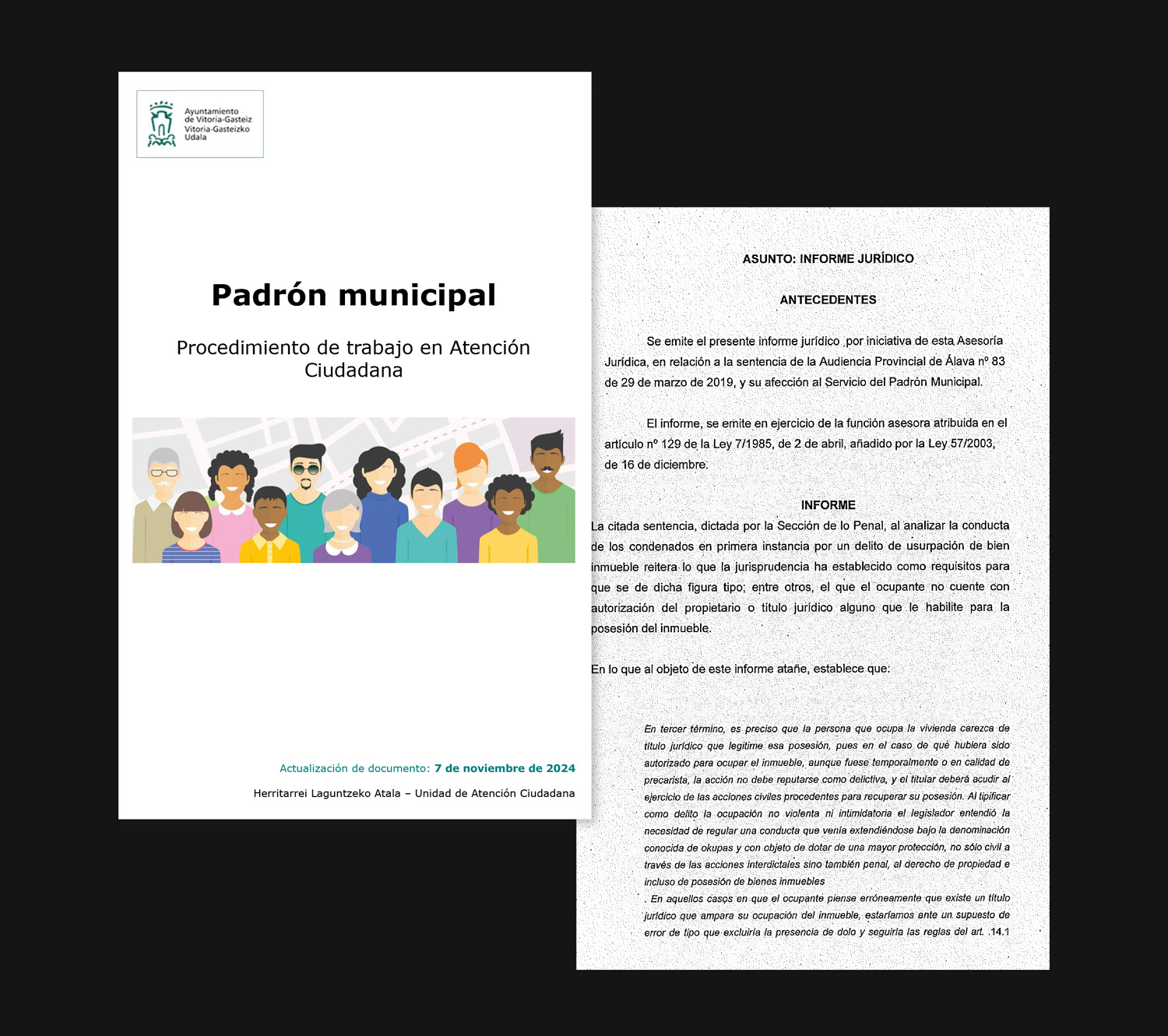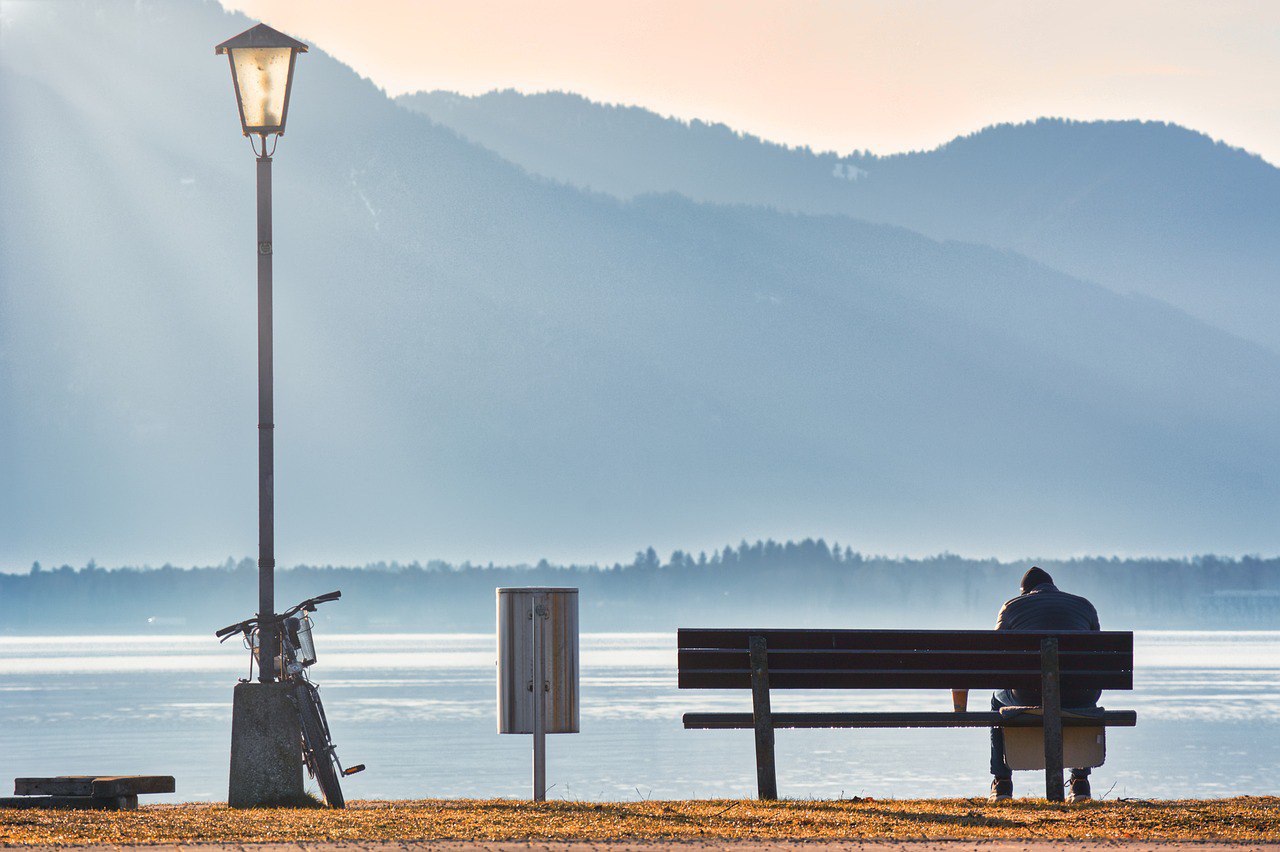"We have to step out of individual responsibility and place thickening in the collective"
- In 2013, Magdalena Piñeyro, together with another member, founded the Stop Gordophobia (Stop Lodiphobia) portal, a portal on which few knew anything. The platform worked hard to extend the term in the Spanish state and ten years later things have changed considerably. In the case of Euskal Herria, the topic has been addressed by groups such as the Ramona collective and concrete people, although in early September 1. In Gernika, in whose round table Piñeyro participated, Great Restaurants were held: a milestone.

Magdalena Piñeyro. Montevideo, Uruguay, 1986
Uruguayan, migrated to the Canary Islands. She graduated in Philosophy and later studied Master in Gender and Equality Policies. In 2013 he created with another member the Stop Gordophobia page, which recently suspended its activity maintaining its contents. The platform had 106,000 followers on Facebook and 15,000 on Twitter and Instagram. Piñeyro has written two books, STOP gordophobia and subverse panzas [STOP lodiphobia and rebel belly] (Zambr-Baladre, 2016) and 10 screams against gordophobia [10 screams against gordphobia] (Vergara, 2019) and on the TEDx portal issued the conference End gordophobia [Destroy]. It currently offers workshops and conferences to combat obesity, racism and machismo.
As he says at the beginning of his second book, he spent many years in silence before naming dense violence. Do you remember when you felt that click, the need to talk about it?
It was a process. I would say the first clique was in the 15M movement of Tenerife. In 2011, we were in the plaza and everything was politicizing: we were talking about bodily politics, assemblies, horizontality, ecology… But nobody was talking about thick bodies. Feminisms also did not consider obesity as a political space. So one night talking to a fat colleague, the topic came out and I realized that what was happening to my body was related to being fat and not just me. In light of this, I studied a lot of my experiences and realized that it was not an individual issue, but a political, structural one, a form of discrimination based in society. Of course, I was a political militancy and a social struggle, and when I see an injustice, I rebel.
And he created Stop Gordophobia with Carlos Savoie.
For two years we looked for information and in 2013 we launched the platform. But it wasn't an automatic militancy. At first we created a page to find people who lived like us. And a lot of people explained their first-person experiences. At that time I was in other political militias, for example, in the Student Assembly, against the Bologna plan, and in feminist groups. Lodifobi's was a hobby on the internet. But after two years, it became my main political militancy, because I realized that I was one of the toughest oppressed people I suffered in my life, but nonetheless I thought I was second-rate by my own grosphobia, which is very difficult to talk about.
Is it still difficult?
Yes. Every time we want to talk about the thicknesses, someone always laughs, doesn't think it's a social struggle. Right here, it happened to me, in the Basque Country. They called me to give a conference and it was a mixed group. For the militants faced men, because they did not want such conferences to be organized; they said how we fat people thought about what we were doing politics, that we had to diet and lose weight.
Ufa.
They are too. So I tell him it's been a process of empowerment to turn this into a social struggle. We were so ashamed of our body, because that shame didn't allow us to say: I'm not going to let you keep insulting me.
It seems that the thick ones have to break two closets. One, consider ourselves a dream. “I am thick” and not “I am fat”. And then: I don't intend to change. That second closet also has to break it, and that means you have the strength to read books, to participate in a group, to meet up with grubs in the Basque Country and fight it.
.jpg)
"We think we choose to be the way we are the obese people or we don't try to join the body canon."
Almost ten years have passed since they created the platform and things have changed a lot. What would you highlight?
It was terrible. The big breakthrough, which the word has spread a lot. It is becoming increasingly known and its meaning and the oppression we live in is much more known. Talking about it is a strong and healing thing. And on the other hand, a lot of obese people have embarked on activism and creating content on the subject.
In the Spanish state, many thick activists of reference are migrated in Latin American countries – Lucrecia Masson, you…–, and in Latin America it is also a very strong movement – Laura Contrera, Constanza Álvarez…–. I don't know if there's a relationship there.
I don't think it's a fluke. I think we were accidentally awakened by the awareness of a colonial state of the body. We in the South have experienced all this oppression, because the canons of beauty and life and everything have always been European, white and blatant. Then, over time, the topic has been theorized and studied, and we've seen that locophobia has profoundly racist and colonial roots, as Sabrina Strings has said.
In addition, at the beginning of the conversation, I wondered about the clique, and the big click of my life was migration. I migrated when I was a teenager, and I suddenly realized that there are inequalities in the world, unfair inequalities, and that, as a consequence, my family and I had to leave our country. When you come from a territory like this, where you know you live a life that's very unfair because of the maldistribution of wealth, political corruption, etc., you've already questioned the world order and it's easier for you to identify what's behind your body.
In the first part of the book it is evident that he wants to raise the issue as clearly as possible, without losing depth. That balance is difficult to achieve.
I wanted to write a book that anyone can read and understand, but keeping the depth that a book of these characteristics needs, because it's a new topic, it's a complex subject, and we have to be able to discuss it, to explain what's going on, because still a lot of people tell us that there's no such thing as phobia. So, using a simple and accessible language for everyone, I wanted to explain and spread the existence of phobia.
In his first book, on the contrary, he explained thichobia from a more theoretical point of view.
Yes, in my first book I compiled the master's thesis. According to my theory, the oppression of phobia is crossed by three axes: aesthetics, health and morality, which are inseparable. The aesthetic part offers an external model of the body, and the thick body is considered as fragment and disgusting. This aspect is easily identifiable. Subsequently, in terms of health, the coarse body is considered a sick body, just as homosexuality has also been considered a disease. Science and oppression have a close relationship, at another point we could talk a lot about it.
And the moral axis?
I found I was reflecting on the other two. I thought in my caution that there are a lot of sick people and there are others who do not entirely agree with the beauty canon, but do not suffer as much violence as the fat ones. We receive terrible violence over our bodies: insults, bullying, medical violence, street harassment… Then there is something else. And the moral part, it's believed that we choose to be how we are obese people, or that we don't make enough effort to join the body canon. And there comes punishment. In addition, this has a close relationship with the other understanding of the neoliberal body, which says that the body is self-built and excludes socioeconomic, cultural, genetic contexts, etc. They set it up.
And on the other hand, I'd like to ask, who today can fulfill health orders, that is, eat five fruits and vegetables a day, make four or five meals, one hour of physical exercise, sleep eight hours, without anxiety, so that we can do all of this with work and economic security? The morality of health punishes the working class.
.jpg)
"When I presented the first book, he had to interrupt the tour because he couldn't bear it. I couldn't endure so much pain."
He also questions the current body positivity in the book. You don't think feeling good about your body is a matter of attitude.
I believe that self-esteem is also a political issue and that it is very difficult not to be hated in this world, that hates you and constantly pushes you towards that hatred. And I think forcing us to love ourselves is a way of continuing to self-regulate.
In short, in this logic it is not only “I hate myself because the world hates me”, but also I cannot love myself in a world that hates me, and that is why I am also bad. Another individual responsibility. I believe that we have to get out of individual responsibility and put all this at the collective level.
He's done a lot of lectures and workshops. What are you usually with?
Especially with questions about health. And with tremendous pain. With tremendous shame. For example, when I introduced the first book, I had to interrupt the tour because I couldn't handle it. I couldn't endure so much pain.
And something wonderful?One of
the most beautiful things that I've ever presented the book was in Madrid, in the busy center called La 13-14. All full of hippies and punkis, and there came an old woman who came to the knees of the skirt, sneakers, humbly combed… I, with all my prejudices, thought he was wrong. But at the end of the conference, he bought me the book and told me that his daughter didn't speak to him and that's why he came. Why didn't your daughter speak to her? Well, apparently, her mother told her to slimmer, and her daughter replied that “you would rather have a addicted daughter than a thick daughter.” And then he didn't talk to him anymore. Then the lady told me she came to the conference trying to understand her daughter and asked me to sign the book, give it to her daughter and apologize.
Chicken butt.
Yeah, really. In short, it is a collective composition. In every presentation, in every talk, people tell you things, or listen to someone else's story, or buy the book for the mother. Something is emerging and it's very exciting.
How have the demands of feminisms been collected?
By place. In some spaces they have accepted the topic of thickness, they have seen that it is a struggle to take into account and that affects them. In other spaces not. In some places you are told that thickening does not exist and obesity is bad for health. And another thing that has happened, which has been repeated in the angled world since the beginning of the thickening, is that feminism realizes this struggle, because it ultimately affects the whole world, but ultimately drives messages like this: “for us to love ourselves” and “everyone has the same thing.” They observe the part that affects them, but they are not responsible for their privileges. Because we all don't have the same thing: I get very slow in this chair and you easily. We don't have the same thing and nothing happens. Our differences do not have to be shared out, as Audre Lord said, but we have to put them on the table to be able to fight them.
* * * * * * *
LAST WORD
“We
can all have racist, fat or macho attitudes, because in our societies we have been educated for it. I believe that in social movements we must abandon punitivism and claim responsibility: In Uruguay, we call it “warning.” It is not the same mistake for me, but how we deal with it. What are you going to do with the shame of using the word ‘fat’? That is the most important thing for me. Not that you feel embarrassed now to say ‘fat’, but what you will do with that shame from now on, knowing that it is obese.”
Trumpen itzulera pizgarri izan da sendotuz doan eskuin muturreko erreakzionarioen mugimenduarentzat. Izan ere, historikoki, faxismoaren gorakada krisi ekonomikoekin lotuta egon da, baita sistemaren zilegitasun politiko eta ideologikoaren krisiarekin ere. Gaur egun, geldialdi... [+]
The policy of the Basque Government to criminalise the poor has become news again in November. Lanbide has created an anonymous whistleblower for honest citizens to denounce “any suspicion of irregular actions” from potentially fraudulent citizens receiving Income Guarantee... [+]
Pools can be a classroom to understand class conflict, analyzing differences between bodies. I've been swimming in municipal pools for many years. Almost always in the Aldabe Civic Center, located between the neighborhoods of Alde Zaharra and Errota. But there was a time when I... [+]
Iruñerriko Etxebizitza Sindikatu Sozialistak eta Harituk Iruñeko Udalak etxegabeentzat eskaintzen dituen baliabideak kritikatu dituzte: "Ogi apurrak dira", adierazi du Martin Zamarbide Harituko kideak. Behin behineko zenbait "aukera" ematen... [+]

























